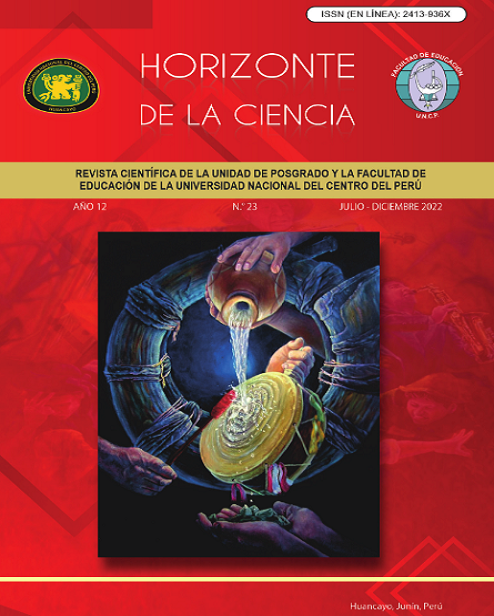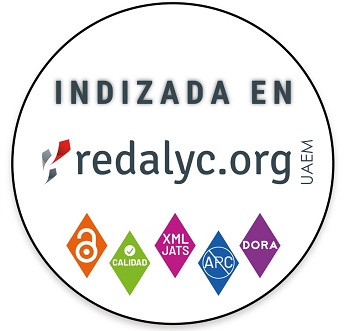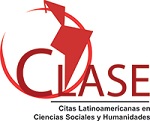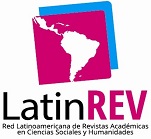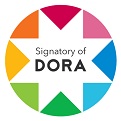Argumentative Essays to Optimize the Evaluation of Postgraduate Learning
DOI:
https://doi.org/10.26490/uncp.horizonteciencia.2022.23.1474Keywords:
academic essays, assessment of competencies, postgraduate studies, databases, virtual learningAbstract
Virtual learning stands out as an opportunity for the development of learning to learn, due to the accelerated production of knowledge, the development of information and communication technologies, changes in society and in health, such as social isolation due to global pandemic. But in our country, adequate tools for virtual education are not used, which could have been caused by a university law that requires face-to-face training, dragging customs and tools to postgraduate training. The objective of this essay is to justify that the optimal way to evaluate and improve postgraduate learning is by writing an argumentative essay, because in it the student, in addition to developing their writing skills, exposes the arguments that support their answer. to a problem with a series of information connected and explained with references obtained from high-level academic databases and the support of computer tools.
Downloads
References
Azlan, C. A., Wong, J. H. D., Tan, L. K., A.D. Huri, M. S. N., Ung, N. M., Pallath, V., Tan, C. P. L., Yeong, C. H., & Ng, K. H. (2020). Teaching and learning of postgraduate medical physics using Internet-based e-learning during the COVID-19 pandemic – A case study from Malaysia. Physica Medica, 80, 10–16. https://doi.org/10.1016/j.ejmp.2020.10.002
Coates, H., & Mahat, M. (2014). Advancing student learning outcomes. In Higher Education Learning Outcomes Assessment: International perspectives.
Crook, C., & Nixon, E. (2021). How internet essay mill websites portray the student experience of higher education. Internet and Higher Education, 48(February 2020), 100775. https://doi.org/10.1016/j.iheduc.2020.100775
Dickinson, P., & Adams, J. (2017). Values in evaluation – The use of rubrics. Evaluation and Program Planning, 65, 113–116. https://doi.org/10.1016/j.evalprogplan.2017.07.005
Efthymiou, L., Epaminonda, E., & Ktoridou, D. (2021). Engineering to Management Transition. In Cases on Engineering Management Education in Practice (pp. 105–123). University of Nicosia. https://doi.org/10.4018/978-1-7998-4063-3.ch006
Elsevier. (2021). Mendeley. Simplify your workflow, accelerate your research. Elsevier. https://www.elsevier.com/solutions/mendeley
Fernando, W. (2018). Show me your true colours: Scaffolding formative academic literacy assessment through an online learning platform. Assessing Writing, 36, 63–76. https://doi.org/10.1016/j.asw.2018.03.005
Filho, A. H., do Prado, H. A., Ferneda, E., & Nau, J. (2018). An approach to evaluate adherence to the theme and the argumentative structure of essays. Procedia Computer Science, 126, 788–797. https://doi.org/10.1016/j.procs.2018.08.013
Foresman, G. A., Fosl, P. S., & Watson, J. C. (2017). The critical thinking toolkit. Wiley Blackwell.
Gray, J. S., Connolly, J. P., & Brown, M. A. (2019). Measuring intercultural knowledge and competence in college essays: Does a performance-based rubric have construct validity? Studies in Educational Evaluation, 62, 142–148. https://doi.org/10.1016/j.stueduc.2019.05.007
Ho, V., & Li, C. (2018). The use of metadiscourse and persuasion: An analysis of first year university students’ timed argumentative essays. Journal of English for Academic Purposes, 33, 53–68. https://doi.org/10.1016/j.jeap.2018.02.001
Hyland, K. (2005). Metadiscourse: Exploring Interaction in Writing. Continuum.
Kapasia, N., Paul, P., Roy, A., Saha, J., Zaveri, A., Mallick, R., Barman, B., Das, P., & Chouhan, P. (2020). Impact of lockdown on learning status of undergraduate and postgraduate students during COVID-19 pandemic in West Bengal, India. Children and Youth Services Review, 116, 105194. https://doi.org/10.1016/j.childyouth.2020.105194
Klimova, B. F. (2011). Making academic writing real with ICT. Procedia Computer Science, 3, 133–137. https://doi.org/10.1016/j.procs.2010.12.023
Kuzborska, I., & Soden, B. (2018). The construction of opposition relations in high-, middle-, and low-rated postgraduate ESL Chinese students’ essays. Journal of English for Academic Purposes, 34, 68–85. https://doi.org/10.1016/j.jeap.2018.03.013
Leyland, C. (2021). The interactional construction of the academic reader in writing tutorials for international students: An advice-giving resource. Linguistics and Education, 61, 100900. https://doi.org/10.1016/j.linged.2020.100900
McAvinia, C. (2016). Enter the VLE. In Online Learning and its Users (pp. 11–34). Elsevier. https://doi.org/10.1016/B978-0-08-100626-9.00001-0
Myskow, G., & Underwood, P. R. (2020). Applying concepts in international relations: The language of causal explanation in high- and low-graded concept-application essays. English for Specific Purposes, 60, 113–126. https://doi.org/10.1016/j.esp.2020.06.002
North, S. (2005). Different values, different skills? A comparison of essay writing by students from arts and science backgrounds. Studies in Higher Education, 30(5), 517–533. https://doi.org/10.1080/03075070500249153
Pelger, S., & Nilsson, P. (2016). Popular Science Writing to Support Students’ Learning of Science and Scientific Literacy. Research in Science Education, 46(3), 439–456. https://doi.org/10.1007/s11165-015-9465-y
Petchko, K. (2018). What Is Academic Writing? In How to Write About Economics and Public Policy (pp. 1–18). Elsevier. https://doi.org/10.1016/B978-0-12-813010-0.00001-6
Reinhold, I., Batstone, K., González, I. G., Troian, A., & Yu, R. (2017). Quality of academic writing for engineering students at lund university. Industrial Engineering and Management, 14(1), 15.
Rigby, D., Burton, M., Balcombe, K., Bateman, I., & Mulatu, A. (2015). Contract cheating & the market in essays. Journal of Economic Behavior & Organization, 111, 23–37. https://doi.org/10.1016/j.jebo.2014.12.019
Schei, E., Fuks, A., & Boudreau, J. D. (2019). Reflection in medical education: intellectual humility, discovery, and know-how. Medicine, Health Care and Philosophy, 22(2), 167–178. https://doi.org/10.1007/s11019-018-9878-2
Wingate, U. (2012). ‘Argument!’ helping students understand what essay writing is about. Journal of English for Academic Purposes, 11(2), 145–154. https://doi.org/10.1016/j.jeap.2011.11.001
Published
Issue
Section
License

This work is licensed under a Creative Commons Attribution-NonCommercial 4.0 International License.

